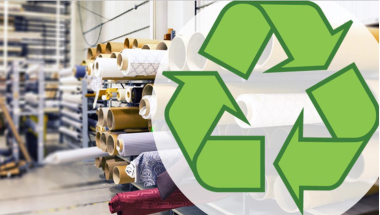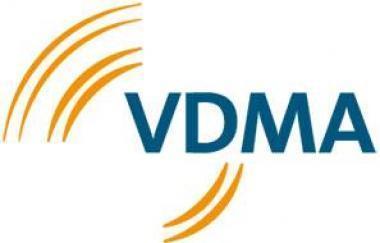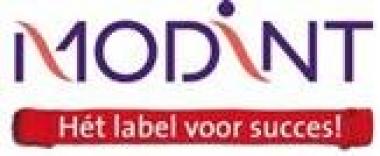AFBW: Zukunftsprojekt „CycleTex BW“ für die Wertschöpfung in der faserbasierten Lieferkette
Die Allianz Faserbasierte Werkstoffe e.V. (AFBW) hat mit Unterstützung des Wirtschaftsministeriums von Baden-Württemberg das Projekt „CycleTex BW“ auf den Weg gebracht. Mit diesem Projekt sollen die Recycling-Prozesse entlang der gesamten textilen Wertschöpfungskette optimiert werden. Zahlreiche Unternehmen aus der Textilindustrie machen mit. Ziel des Projektes ist, textile Produktionsabfälle bspw. durch neue Technologien der (eigenen) Produktion zurückzuführen. Neue hochwertige Sekundärrohstoffe und ggf. andere Materialien sollen durch neue Verfahren entwickelt und schlecht recyclebare Wertstoffe sollen ersetzt werden.
Für die faserbasierte Industrie, als einer der global größten Ressourcenverbraucher der Welt, ist das Thema Nachhaltigkeit von zentraler Bedeutung. Geschäftsmodelle weltweit stehen vor großen Transformationsprozessen. Die heimische Textilindustrie sieht in dem regulatorischen, medialen und marktlichen Druck auch Chancen. Das landesweite Netzwerk AFBW will im Rahmen des dreijährigen Projekts „CycleTex BW“ Innovator, Moderator, Türöffner und Kümmerer sein. Ulrike Möller, Netzwerkmanagerin AFBW: „CycleTex BW soll dazu beitragen textile Post-Industry Produktionsabfälle so lange wie möglich in der textilen Kette zu halten und damit langfristig eine Kreislaufwirtschaft entstehen zu lassen. Wir wollen Chancen entwickeln, bestehende Modelle fortschreiben oder diversifizieren. Dadurch soll eine weitere Form der Zukunftssicherung für die faserbasierte Industrie geschaffen werden.“
„CycleTex BW“ wird vom Ministerium für Wirtschaft, Arbeit und Tourismus des Landes Baden-Württemberg mitfinanziert. Wirtschaftsministerin Dr. Hoffmeister-Kraut betont: „In jeder Branche und an jeder Stelle der Wertschöpfungskette müssen wir in Zukunft eine umweltfreundliche und perspektivisch klimaneutrale Form des Wirtschaftens erreichen. Mit dem Projekt CycleTex BW stellen wir jetzt die Weichen richtig, um auch in der Textilbranche in Baden-Württemberg Geschäftsmodelle weiterzuentwickeln und nachhaltige Produktportfolios aufbauen. Das ist nicht nur gut für das Klima, sondern festigt auch die international führende Stellung Baden-Württembergs vor allem bei besonders leistungsfähigen technischen Textilien.“
Bereits heute haben 67 Unternehmen aus Baden-Württemberg und darüber hinaus durch einen Letter of Intent (LOI) ihr Interesse an dem Projekt bekundet. Da Produktkreisläufe immer auch mit Materialtransport zu tun haben, macht es Sinn im regionalen Kontext zu denken. Der Großraum Süddeutschland-Österreich-Schweiz-Frankreich stellt eine spannende Region für „CycleTex BW“ dar. Für die Unternehmen bedeutet dieser regionale Ansatz eine Sicherstellung der Infrastruktur und Zugang zu Rohstoffen.
Durch neue Technologien und nachhaltige Produkte kann die Industrie außerdem einen Wettbewerbsvorteil erlangen. Eine stärkere Verwendung von Sekundärrohstoffen kann die Kosten senken. Durch die zunehmende Verwendung von Sekundärmaterialien sind Unternehmen weniger abhängig von Primärrohstoffen und damit verbundenen Problemen in der Lieferkette. Mehr noch: Die Entwicklung von Recyclingmaterial- und Prozessinnovationen kann zu internationaler Nachfrage führen.
Auch Nachwuchskräfte setzen bei der Wahl des zukünftigen Arbeitgebers auf umweltbewusste Firmen.
Die Textilindustrie ist in der Viel- und Kleinteiligkeit der Wertschöpfungsketten besonders herausgefordert. So sind Rohstoffhersteller, Endprodukthersteller, Händler und andere Inverkehrbringer sowie ggf. auch Entsorger und Verwerter zwar Teil einer Kette, aber nicht Akteure im selben „eco system“. Aus dem Wunsch nach wirklichem Re- oder sogar Up-Cycling erwächst eine zwingende, vorgeschaltete Analyse, welche Dimensionen der textile Kreislauf hat, welche Akteure mit welchen Kompetenzen bereits am Markt sind, was der Markt in Zukunft braucht bzw. was wissenschaftlich und technisch denkbar wäre (z.B. mechanisches Recycling vs. chemisches Recycling). Diese Analyse soll im Rahmen von CycleTex BW erfolgen.
Bislang reduziert sich Textilrecycling oftmals auf Downcycling, indem z.B. Textilfasern im „second life“ als Dämmmaterial verwendet werden. Zudem werden Textilien auch thermisch verwertet oder landen auf der Deponie. Recycling von technischen Textilien ist nicht zuletzt durch die Vielzahl an unterschiedlichen Materialien, Mischungen und Beschichtungen herausfordernd. Umso notwendiger ist eine Zusammenarbeit auf allen Stufen der Kette, um den Kreislauf von Materialien zu optimieren und damit den Lebenszyklus der Rohstoffe zu verlängern. Das Zusammenführen der Akteure soll durch CycleTex BW gelingen.
Des Weiteren wird beim Textilrecycling bisher eher an Hemd und Hose gedacht und die Abfälle in der Produktion werden wenig berücksichtig. Gerade hier kann aber echte Wertschöpfung und vor allem Nachhaltigkeit in der Lieferkette entstehen.
Die faserbasierte Industrie hat erkannt, dass neue Geschäftsmodelle und Business Cluster wichtig sind, um Recycling zu stärken. Diese sollten aber sinnvollerweise über bestehende Geschäftsmodelle und Warenstromstrukturen, wie simples Sammeln und Reißen hinausgehen. Handlungsleitend ist also, unternehmerische Chancen zu entwickeln, bestehende Modelle fortzuschreiben oder zu diversifizieren und damit eine weitere Form der Zukunftssicherung für die Textilindustrie zu schaffen. Mit dem erweiterten „grünen Portfolio“ sollen die Unternehmen langfristig eine Resilienz in der Lieferkette, eine Unabhängigkeit von China erreichen und ihre Wettbewerbsfähigkeit effektiv ausbauen.
Die Landesregierung von Baden-Württemberg will laut Koalitionsvertrag in den Bereichen Klima- und Naturschutz „Baden-Württemberg als Klimaschutzland zum internationalen Maßstab“ machen. Dieses Ziel soll u.a. durch ein besseres Recycling der eingesetzten Materialien erreicht werden. Innovative Kreislaufwirtschaftslösungen werden daher als Wachstumsfelder der Zukunft gesehen. Die neue Landesregierung betont, dass man auch in diesem Bereich international zum Marktführer werden will. Um die Kreislaufführung weiter voranzubringen, soll die Entwicklung und Inbetriebnahme effizienter Verwertungsverfahren unterstützt werden.
Allianz Faserbasierte Werkstoffe Baden-Württemberg e.V. (AFBW)












